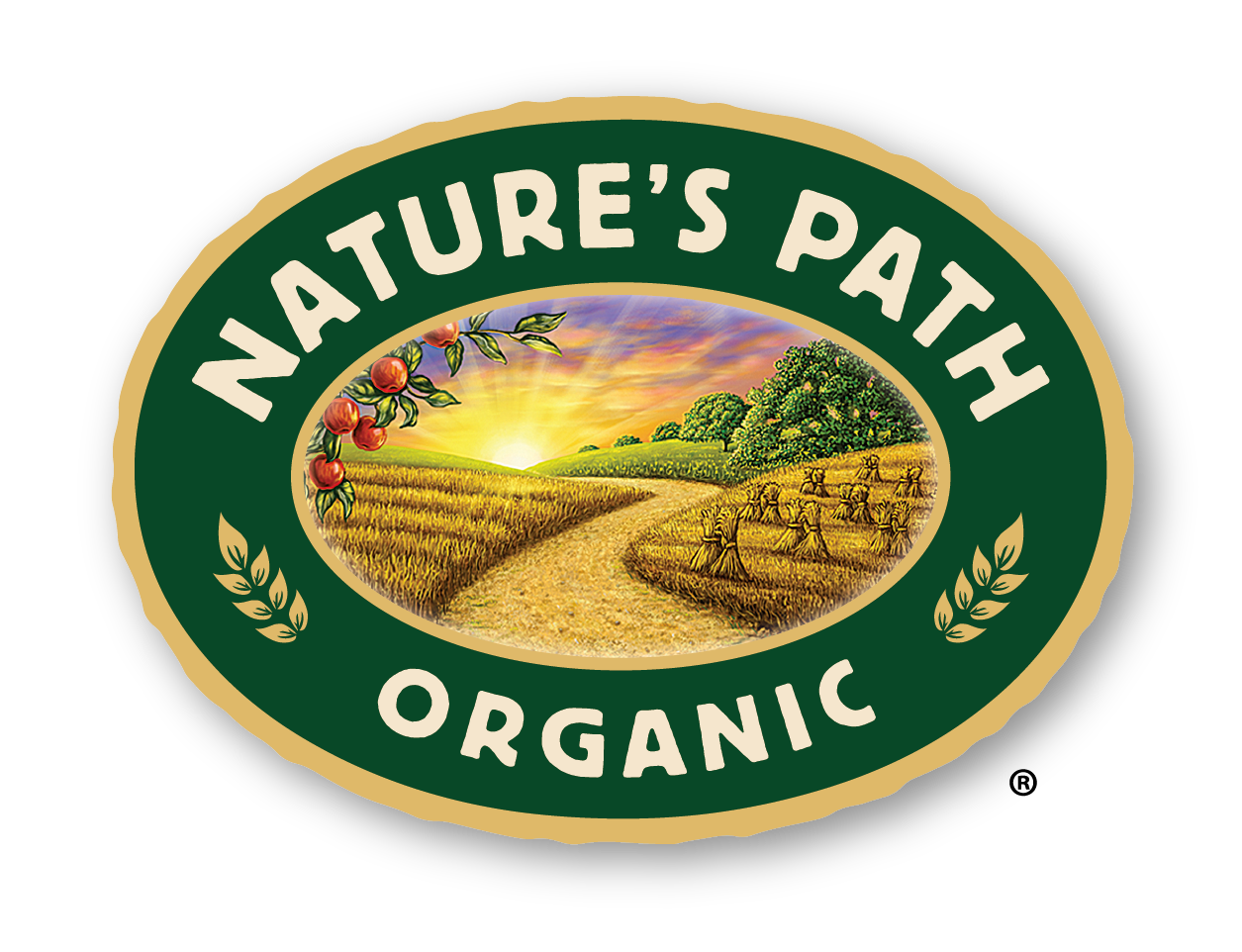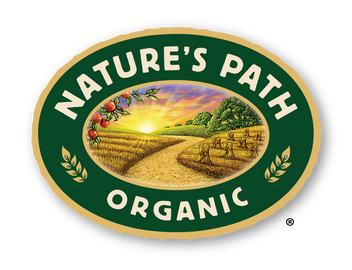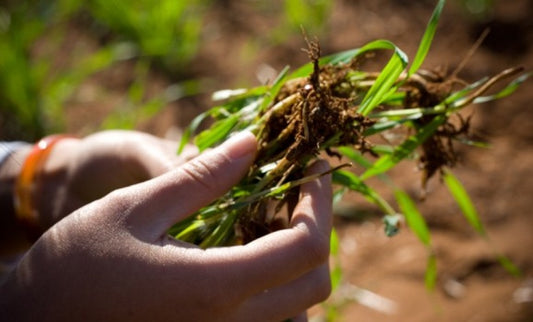Occupy Madison Grow - Madison, WI
Bruce Walbaum of Occupy Madison Grow (OMG) was one of last year’s Gardens for Good recipients, and his team leveraged their grant funds to expand their garden’s growing capabilities to give back to their community in a myriad of ways. OMG began by using some of the grant funds to purchase seed starts which supplied their onsite gardens and produced the plants that were sold during their annual spring plant sale. The spring plant sale is one of OMG’s biggest initiatives and this year they raised $4,500. Proceeds from the plant sale go directly back to the garden and other enterprises that benefit the community of Madison, Wisconsin. Additional funds raised throughout the year support the ongoing operation of Occupy Madison Village, a community of tiny homes for formerly homeless people within the community.Seedlings and plants thriving at the Occupy Madison Grow gardens in Madison, Wisconsin.
Additionally, Occupy Madison Grow is helping plant it forward with Madison’s tiniest green thumbs! This year, the organization donated seeds to a local elementary school for their community garden. The garden, which was planted by students, teachers and parents, will provide an environment for literacy instruction in summer school this year. School staff and local families are also invited to adopt the garden for a few days throughout the summer to distribute the responsibilities of watering, weeding and harvesting the produce. In the fall, students will return to evaluate how their plot fared over the summer and have a clearer understanding of how produce is cultivated and harvested from start to finish. Occupy Madison is also using funds from the Gardens for Good grant to build a greenhouse and expand their raised bed growing area within the community garden, which will double their seed germination space and growing potential for the next season. Bruce anticipates the greenhouse will be completed by the end of this summer and plans to host a community event to celebrate.Everett Community Growers - Everett, MA
In Everett, Massachusetts a 2015 Gardens for Good recipient, Everett Community Growers, has been busy cultivating an urban garden that is feeding and bringing the local community together. Emily Nink, Development Coordinator for the Everett Community Growers, and her team used the grant to launch Northern Strand Community Farm – Everett’s first community farm. Within the first year, the farm donated an estimated 200 pounds of organic produce to the Bread of Life food pantry serving 5,000 patrons in Everett and nearby Malden. The produce harvested from the farm included an estimated 100 pounds of greens such as mizuna, arugula, swiss chard, spinach, kale and at least 35 pounds of tomatoes throughout the season. Upon receiving the grant funds in 2015, the Everett Community Growers were able to pay eight youth volunteers, a farm manager and host monthly events and weekly community work days. Continuing momentum this year, Emily and team remain steadfast by engaging new residents in the community to help make plans to expand the farm. With growth on the horizon, even more local students have become involved at the farm, and they recently painted a mural bringing added beauty and life to the outdoor community space. To ensure community youth remain involved at the farm and in the organic growing process, Everett Community Growers is working with the city to integrate their youth jobs training with its existing programming for youth summer jobs, and are collaborating with the YMCA to do outreach for summer meal programming. This year, the group will also provide nutritional information and recipes to the food pantry patrons who receive the produce, in response to feedback from the first year’s initiative. “Engaging the residents adjacent to the farm is critical to achieving community buy-in and involvement” said Emily Nink of Everett Community Growers. “They will be the eyes and ears at the garden, and they will watch out for the garden if they’re a part of our group and are involved with our various activities.”Vallejo People’s Garden - Mare Island, CA
With the help of the Gardens for Good grant, California-based Vallejo People’s Garden is inspiring a movement to grow more gardens globally. Using funds from the program, Vilma Aquino and her team hired a garden designer to expand their garden with 20 raised beds in addition to installing a new perimeter fence and irrigation system. These changes have helped the Vallejo People’s Garden produce even more organic fruits and vegetables for those who are most in need. With the goal of producing a sustainable, secure local food system, the garden’s harvest sharing program provides Vallejo food banks, homeless centers, and senior lunch kitchens with fresh organic produce. Aquino estimates that since the garden’s inception in 2010, they’ve been able to support nearly 5,000 people across Vallejo and the surrounding areas. Through the organization’s continued work to promote health and wellness via organic gardening, they have inspired countless homeowners and tenants within Vallejo to start gardens of their own. Even more impressive, Vallejo People’s Garden is inspiring change on a global scale. The city is connected with other countries in a program called ‘Sister City’ that promotes collaboration across borders to promote peace. Recently, government officials from Vallejo’s sister city in Jincheon, South Korea were so impressed with their garden that the visiting mayor announced his intent to implement community gardens in his home city to alleviate hunger for the homeless population. The garden also hosts resident doctors from Kaiser Permanente who regularly visit and learn about how organic gardening can positively affect the health of their patients. For people who are considering starting a garden within their community Vilma Aquino of the Vallejo People’s Garden has some advice on how to maximize your local impact noting, “Have a Facebook page, Instagram or any other social media outlets you may have time for. Connect with garden clubs, senior centers and other groups that may be interested in collaborating. Basically, let your community know you exist!”Growing Chefs! - Vancouver, BC
Growing Chefs! Chefs for Children’s Urban Agriculture is a 2014 Gardens for Good recipient and has utilized the grant funds to expand their student program which puts local chefs and community volunteers in Vancouver elementary schools to teach children about growing and cooking healthy foods. Teams of 3-4 volunteers are assigned to a classroom and visit students seven times over a three-and-a-half-month period. The volunteers help the students plant an indoor windowsill vegetable garden and deliver hands-on lessons that focus on healthy food, local and urban agriculture, and healthy food systems. Right from the beginning, Growing Chefs! encourages students to actively participate in their own health by getting their hands in the soil, planting seeds and tasting healthy foods. At the end of the program, the volunteers help the students harvest their gardens and do a cooking class with the vegetables that they've grown, which culminates in a delicious taste test! The Growing Chefs! team has tracked their progress and success since expanding their program within Vancouver and estimate that they have worked with over 1,000 students, nearly 140 volunteers and have engaged with 35 classrooms around the city. From starting with just four volunteers and two classes the program’s executive director, Helen Stortini notes that the key to success and advice for future grant recipients is to “start small and dig deep!” Building upon their magnificent work within the classroom, Growing Chefs! has also added an intermediate program for students in fourth through sixth grade classes that is active during the Fall. This means that the program is actively gardening half of the year in both the Spring and Fall months – doubling their overall impact within the community!The Ken Spencer Science Park - Vancouver, BC
Another Gardens for Good recipient in Vancouver, The Ken Spencer Science Park for Science World at TELUS World of Science, used grant funds awarded in 2015 to expand and improve their educational vegetable gardens to help feed the local community and promote gardening and more time spent in nature. The team built eight new raised beds, including wheelchair accessible beds in addition to moving a vertical wall to the back of the garden, increasing the amount of sunlight to the existing beds, which greatly improved sightlines to the park improving the ability to grow even more produce. The food grown by the gardens is then donated to a local community kitchen program through the Vancouver Food Bank. The season after Lyndsay’s team won the grant, they increased their donations by 30 percent which directly supports 26 community kitchens in Vancouver’s Downtown Eastside. Aside from an increase in the size of their harvests, Lyndsey’s team have noticed an increase in gardens in the area which she attributes to the positive changes that took place in their garden, as a result of the Gardens for Good grant. Since adding more garden beds close to the entrance of the Ken Spencer Science Park and moving the vertical wall, more people are being drawn in to explore the gardens, which are now more noticeable when passersby’s first walk into the park. “The grant enabled us to have more space to work with, so we also improved the educational content of the park—now we have even more themed beds to teach people about food and the science behind these plants,” said Lyndsay Fraser, Program Specialist of Ken Spencer Science Park. “We are thrilled that the grant allowed us to grow more food for a great cause and inspire people to learn along the way.”Revelstoke Local Food Initiative - Revelstoke, BC
Revelstoke Local Food Initiative (RLFI) is a 2016 Gardens for Good recipient who used their grant funds to expand their event programs, educational workshops and other initiatives to engage with the local community within Revelstoke, British Columbia. At its roots, Revelstoke Local Food Initiative is a collection of concerned citizens that aims to cultivate a vibrant, resilient local food system. With the goal of bringing together the community in the gardens, RLFI has a diverse range of programs that cater to everyone; including its Garden and Art Tour which invites youth and adults to promote local foods and gardens, and its Little Sprouts party events for preschool aged children. RLFI estimates that since receiving the Gardens for Good grant funds, they have been able to connect with more than 500 community members by inviting them to attend educational workshops or spend time in the gardens helping to water, weed and nurture the various plants and produce. In addition to expanding its roster of community engagement activities, RLFI also used the Gardens for Good grant to make improvements within their gardens. From amending the soil, upgrading compost bins, reinforcing raised beds and updating signage, the gardens are thriving and catching even more attention from the community. RLFI currently has one of its community gardens full of plotholders and another garden is full of vegetables that will be harvested and then donated by a volunteer team to the community’s local food bank. “Our gardens may not have grown in size however, we are seeing more community involvement compared to the previous year,” says Jenna Fraser, coordinator at Revelstoke Local Food Initiative.Would you like to be the first to hear about our new products and more? Sign up for our Nature’s Path Newsletter.








